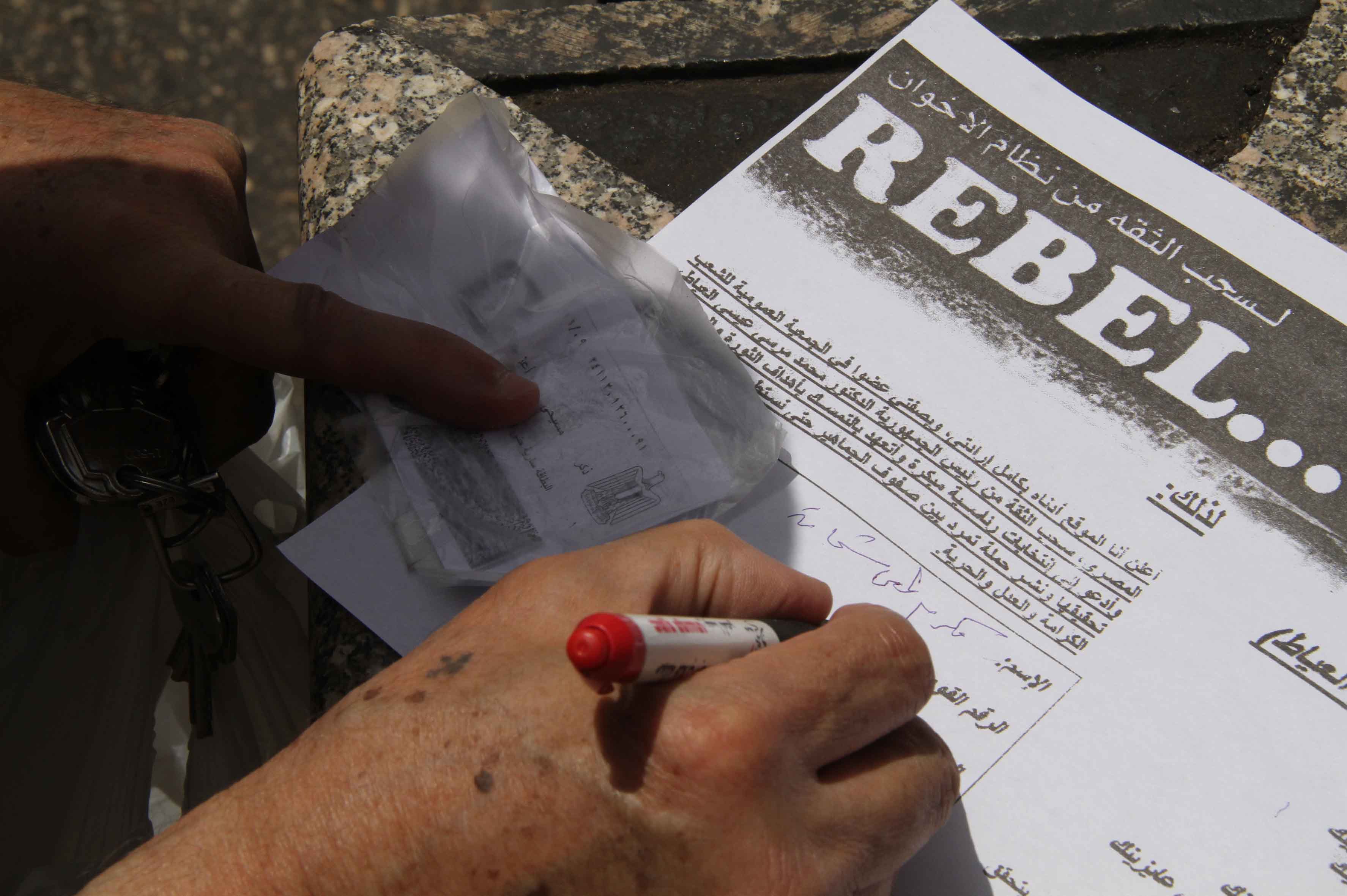TRIPOLI: With rebels closing in on Tripoli, Qaddafi loyalists insist the situation is "100 percent fine" while local residents try live a normal life despite little cash in hand to meet rising costs.
"There is no money," the policeman standing guard outside Sahara Bank tells clients seeking to make withdrawals.
Cash is rare and for the past several months the regime of Libyan strongman Moammar Qaddafi has been limiting monthly withdrawals to between 500 and 1,000 dinars ($350-$700).
In the shops, the prices of basic goods have skyrocketed and most turn to the black market to purchase fuel needs, including petrol and cooking gas canisters that have shot up in price from two dinars to 100.
At the gas pumps, motorists are paying 20 times more than before the uprising against Qaddafi’s regime erupted in mid-February.
"And we don’t find gas canisters or petrol any more," groans Ali, a 40-year-old family man, who also complains of intermittent power cuts during the day in Tripoli.
Ali, who declined to give his surname, says that the regime continues to provide Tripoli residents with food staples such as cooking oil, milk and pasta, which are handed out at "reasonable prices."
But goods once plentiful on supermarket shelves are vanishing.
Insurgents determined to upstage Qaddafi and end his autocratic regime claim that they have managed to block his access to Tunisia, strangling Tripoli’s supply lines.
Rebels hope that by cutting off Tripoli’s access to supplies, the situation will deteriorate, prompting defections and sparking an uprising in the capital.
Opposition forces said Thursday they had seized the refinery in the western town of Zawiyah, the last major barrier before Tripoli a mere 40 km (25 miles) away, and key source of fuel supplies to the capital.
Libyan Prime Minister Baghdadi Mahmudi has hotly disputed the claim, saying the refinery was "without doubt" still in loyalists’ hands.
"We are still strong and we can provide our citizens with all the services" they need, Mahmudi told reporters on Thursday.
The regime of Qaddafi, who has ruled the oil-rich North African nation for four decades, refuses to step down and insists that it controls the coastal road that runs west out of the capital.
Authorities, however, won’t allow residents to wander off west of Tripoli for what they cite as "security reasons."
The rebels, with the help of the North Atlantic Treaty Organization, are meanwhile tightening the noose around Tripoli where near-daily NATO raids are conducted.
A slew of explosions were heard early Friday in the heart of the seaside capital where Qaddafi’s residential complex is located, as well as in several areas in the west of the city. On Thursday NATO warplanes also targeted the capital, witnesses said.
Thousands of Qaddafi partisans gathered in Tripoli’s emblematic Green Square earlier this week in a defiant show of support for their embattled leader.
"Everything is miyeh-miyeh (100 percent)" fine, many of them said when asked to describe how they feel about what is happening in Libya.
And the fact is, despite fears that rebels are around the corner, life in Tripoli continues more or less normally.
Cafes and shops are open late into the night, particularly during Ramadan, the holy month of fasting, during which devout Muslims refrain from food and drink from sunbreak to sunset.
In the evenings, after breaking the fast, many families go out to shop or sit in coffee shops and while away the night before catching their last meal again before daybreak.
"If the rebels enter Tripoli, I hope there will be no combat. Otherwise it will be a massacre," said Mohammad, a civil servant.
"We are tired, this conflict has dragged on. We want to return to our normal lives, no matter who wins," he added.
Salah, a young man who secretly roots for the rebels, says that Tripoli citizens are waiting for their "liberation."
"They don’t want to take any actions. They are waiting for the rebels to come and say to them: ‘You’re free’."

